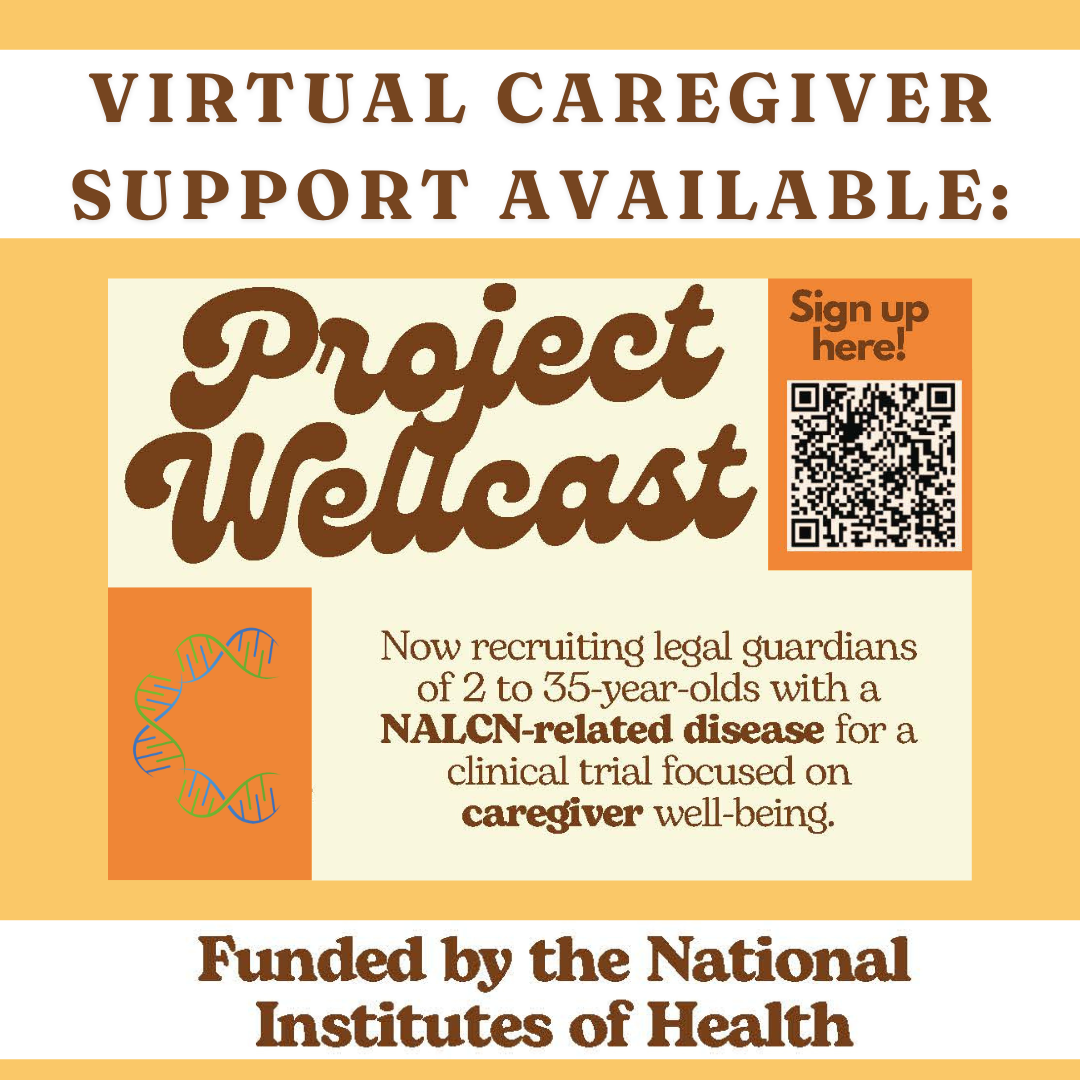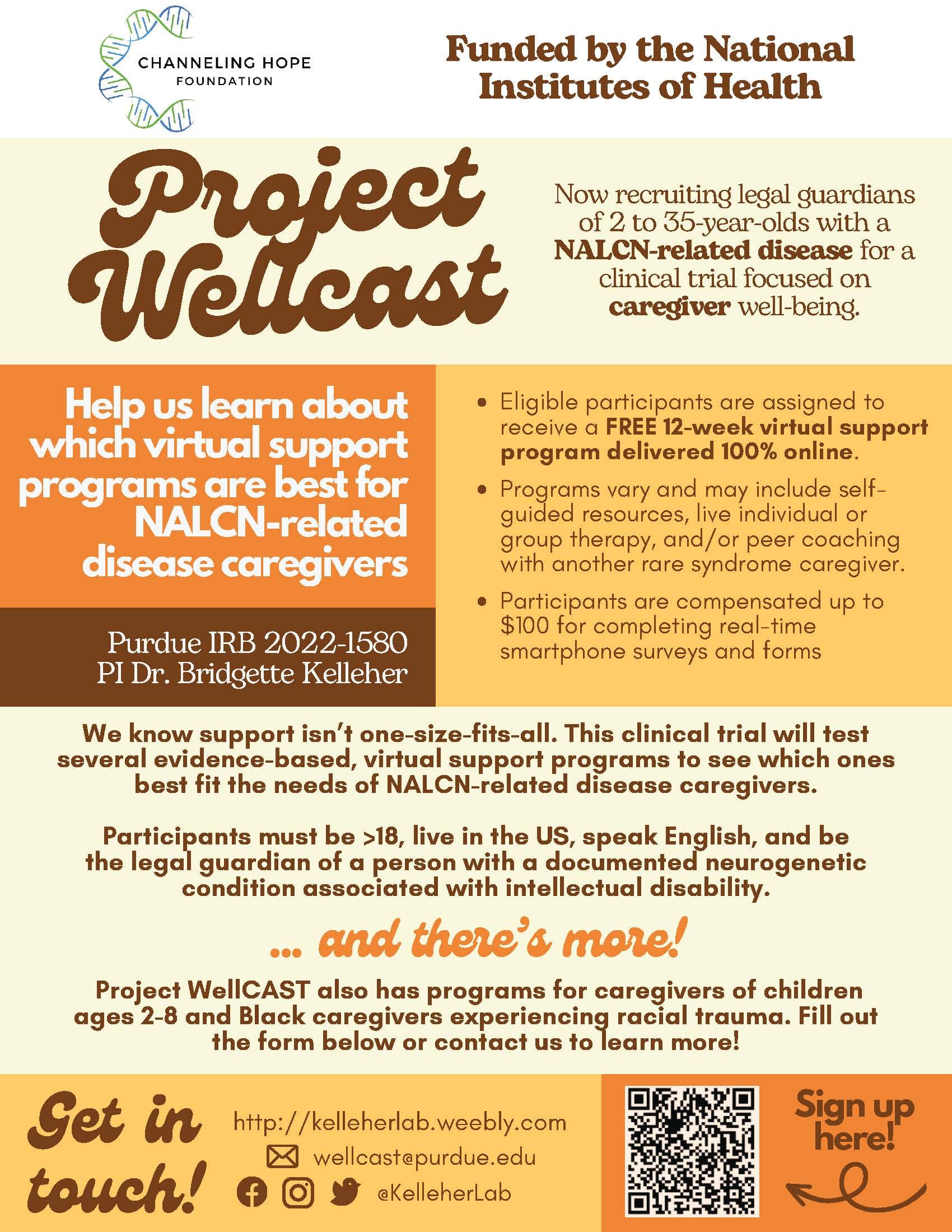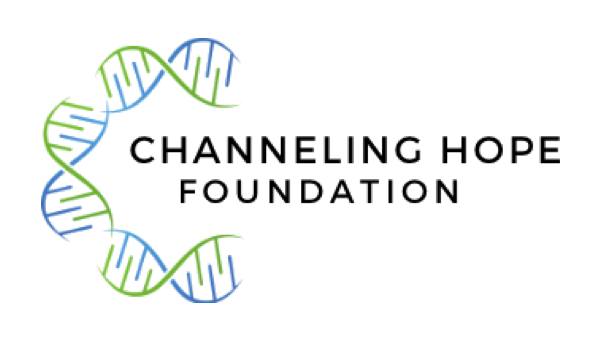Project Wellcast: Clinical Trial

We are excited to announce our participation in a clinical trial focused on improving caregiver well-being. This study is conducted by Dr. Bridgette Kelleher through Kelleher Lab at Purdue University. Caregivers of individuals with NALCN/UNC80 genetic mutations living in the United States* are eligible.
*We seek to be inclusive of caregivers and patients living all over the world. This project is being funded by the United States National Institutes of Health. No Channeling Hope Foundation funding is supporting this study.

Dr. Kelleher's research focuses on how technology can be used to both assess and support children with neurodevelopmental conditions and their families. She is particularly interested in how remote assessment tools can be used to personalize treatments and enhance access to clinical science. Her research is actively funded by multiple awards from the National Institute of Mental Health and a variety of patient-focused foundations.
Project WellCAST started in 2019 as a partnership between patient foundations, researchers, and clinicians who were interested in helping families of children with rare disorders access evidence-based treatments from home. The team is currently recruiting participants for Project WellCAST 3.0. This version of the study was funded by a large grant from the National Institutes of Health and will enroll up to 1,000 caregivers across a three year period. This website has more information on Project WellCAST:

Participating in Project WellCAST is free, and all of the technology and tools needed to participate will be provided. Additionally, participants receive up to $100 for sharing data throughout the study. In total, Project WellCAST activities span approximately 6.5 months, including 2 weeks of baseline data collection, 12 weeks of a support program, and 2 weeks of follow-up data collection. There is some “down time” between phases during which no data collection occurs.
Who is eligible?
Eligibility varies across support options. However, general eligibility criteria include:
Caregiver (age 18+) of a child/dependent ages 2-35
Child/dependent must have a documented neurogenetic condition typically associated with intellectual disability and/or developmental delays; condition may not be neurodegenerative in nature
Caregiver must reside in the US and be fluent in English
What to expect when you sign up?
Complete high level questions regarding participation eligibility.
Select date and time for screening call.
Screening call takes less than 30 mins and is high level mental health questions for eligibility purposes. Information shared on call is confidential.
